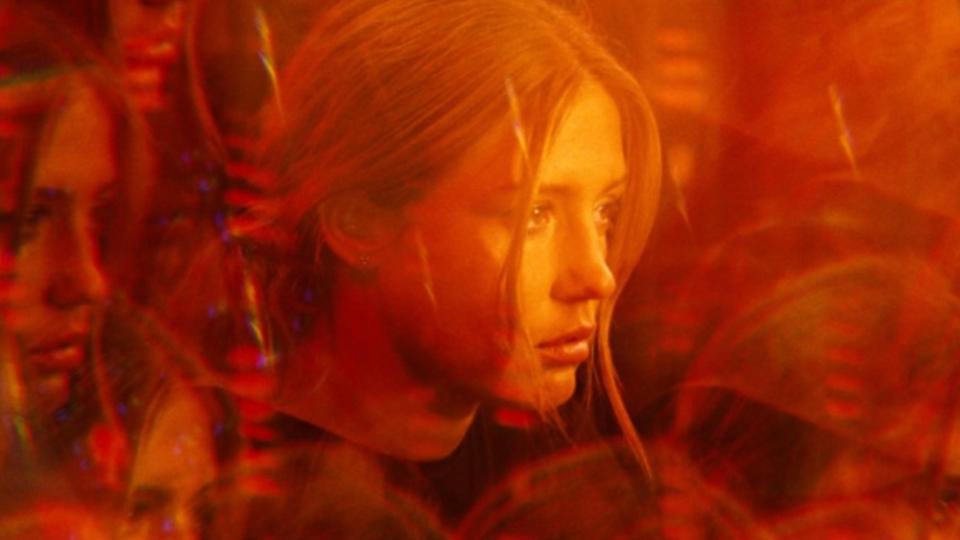Neuchatel Fantastic Film Festival Blurs Borders for Expansive 21st Edition

After two years of hybrid and online-only editions, the Neuchatel Intl. Fantastic Film Festival will fête its 21st year with a return to a fully on-site event, hosting four world premieres, and more than twice as many international premieres.
Running July 1-9, the Swiss event will world premiere the absurdist “Jaws”-in-France riff “The Year of the Shark,” the Thai creature feature “Leio,” and the Japanese Yakuza thriller “Bad City.” Titles like the Toho-produced Kaiju flick “Shin Ultraman,” “Something in the Dirt” from U.S. horror maestros Justin Benson and Aaron Moorhead, and Léa Mysius’ “The Five Devils” will mark their international berths at NIFFF – the latter as the festival’s opening film.
More from Variety
NIFFF Tackles LGBTQ+ Representation With Scream Queer Retrospective
Neuchatel Fantastic Film Festival Brings Genre Out of the Shadows
Neuchatel Celebrates 20th Edition With Taiwan Spotlight, Environmental Theme
This blackjack edition will also mark the first year under the direction of Pierre-Yves Walder, a NIFFF veteran whose involvement with the lakefront festival dates back some time. After a stint in the press office, years as a programmer, and a seat on the selection committee, Walder has kept a foot in Neuchatel every year since 2008, witnessing NIFFF’s growth in size and international stature. Among the elements that Walder wants to foreground in his first go-round as artistic director are the festival’s strong cross-media and interdisciplinary bonafides.
“We try to showcase genre from every style and angle,” Walder tells Variety. “That means making connections between cinema, literature and contemporary art, while showcasing digital innovation in gaming and tech. Genre films have always been intrinsically tied to new distribution models, from home video to DVD to VR now and digital channels. We want to be ahead of the game in that respect.”
Alongside the 128 films playing across the festival’s Asian and International competitions, in the Third Kind showcase for artier fare, and in the Ultra Movies spotlight for midnight-movie thrills, this year’s vintage will feature conferences about interactive storytelling, practical and digital VFX and new technology, while the 14 films screening in Neuchatel’s international competition will play before a jury led by author Joyce Carol Oates.
“[Oates] embodies our interdisciplinary ideal,” says Walder. “She’s simply one of the greatest authors of her generation, directly confronting social subjects like abortion, feminism, and police violence in novels that remain above all psychological thrillers. She has a form of storytelling that plumbs the depths of the imaginary with a gothic and almost horror-like sensibility. She’s hard on her characters, going right into their heads. Her imagination interests us.”

Mubi
Through his years with the festival, Walder has noticed a certain curatorial evolution as well, tied as much to shifting social mores as to a young public that renews itself with every passing year. “We cater to a young crowd with whom word of mouth works very well,” the director explains. “We bring in new people every year, and with them new generational perspectives.”
“I think there are certain titles we programmed 10 years ago that we wouldn’t program again,” Walder continues. “Or at least, not in the same way. Sensibilities have changed, and perhaps certain lower-rent titles are less interesting for the festival. Even in terms of submissions, we’ve passed from a view of the fantastic that was always vast and inclusive to something that has been refined over time.”
Indeed, this year’s competition boasts 14 features from just as many countries, including a number of film industries not immediately associated with genre fare.
Projects like “Ashkal” from Tunisian director Youssef Chebbi, the demonic possession drama “Zalava” from Iran’s Arsalan Amiri, and the “Huesera” from Mexican director Michelle Garza Cervera are but a handful of titles helping the international competition live up to the full promise of its title. The fact that all three will arrive in Neuchatel as part of longer victory laps (“Ashkal,” for instance, premiered last month in Cannes, while “Huesera” received raves in Tribeca and “Zalava” won the both the FIPRESCI and the Grand Prize out Venice’s Critics’ Week) reflects the more welcoming international path for genre titles that Neuchatel itself helped forge – at least on the festival circuit.
“These are extraordinary films that need to be seen,” says Walder. “Some are fragile titles that aren’t guaranteed distribution, both in Switzerland and in the countries of origin, so it’s our role to show them. These works of art deserve the spotlight, and if in the process, they can find a distributor, or screen for the industry, then that’s a real victory.”
In “Vesper” (pictured up top), a Lithuanian-French-Belgian sci-fi drama from directors Kristina Buozyte and Bruno Samper, the NIFFF director sees a culmination of his festival’s mission. The filmmakers’ previous effort, “Vanishing Waves,” played Neuchatel in 2012, winning the jury prize, for which Samper was on-hand to collect, and then spent a decade making sure their follow-up adhered to sky-high expectations.
“ ‘Vanishing Waves’ was among, if not the very first, Lithuanian genre films [to make a splash internationally,]” Walder explains. “So I was thrilled to welcome them back with a project that’s just as artistically compelling, only with a greater budget and a larger scale. It’s an example of ambitious filmmaking from outside the mainstream that is spectacular and visually breathtaking, while offering a kind of alternative proposition. It’s very NIFFF.”
Best of Variety
Sign up for Variety’s Newsletter. For the latest news, follow us on Facebook, Twitter, and Instagram.

